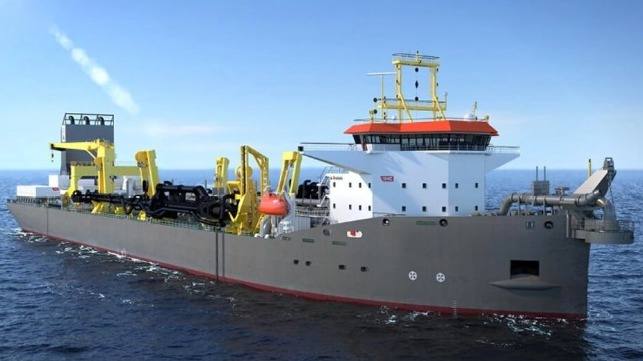Boskalis Orders Mega-Sized, Methanol-Ready Dredge Following Industry Trends

The shipping industry’s affinity for methanol as the emerging alternative fuel of choice continues to build with Boskalis becoming the latest to move toward the potentially green fuel. They reported the order for a mega-sized hopper dredge, which will be delivered methanol-ready and join the nearly 200 ships on order for delivery in the next five years that are designed to operate on methanol.
At the beginning of 2023, DNV Principal Consultant Martin Wold forecast the growth of methanol noting that it was emerging as one of the leading contenders in alternative fuels catching up with and overtaking the pace of the far more established LNG designs. In March 2023, Wold highlighted that the orderbook for methanol-fueled ships had reached 100 and now just a little over six months later, the sector has nearly doubled. While containerships continue to be the dominant group, the adoption of methanol is beginning to reach into more sectors of the industry.
Dutch shipbuilding company Royal IHC and Boskalis reached an agreement for the construction of the massive new trailing suction hopper dredge, which will be one of the largest in the Boskalis fleet. Expected to enter service in mid-2026, the vessel will have a hopper capacity of 31,000 m3.
The company highlights the large size and powerful performance will increase the efficiency of the dredging process. With a double suction pipe equipped with underwater pumps and two discharge pumps with a combined discharge capacity of 15,000 kW, Boskalis says the new trailing suction hopper dredger will be well suited to dredging material and discharge over long distances to a reclamation site.
The design process for the vessel stretched over more than three years according to the shipbuilder which notes there was “full co-creation worked on an optimal and future-proof design.” In addition to making the vessel methanol-ready, they highlight that with dual-fuel engines and installing tanks for the future use of methanol, dual-fuel main engines are equipped with two-stage turbos and can be powered by both conventional fuels and more sustainable alternatives such as biodiesel and methanol, providing for a substantial reduction of CO2 emissions.
The design also increases energy efficiency with elements including full diesel-electric installation and propulsion via Azipods. The companies note that these innovations, combined with the optimized underwater hull design and an advanced automation system, will contribute to a significantly lower fuel consumption.
No comments:
Post a Comment